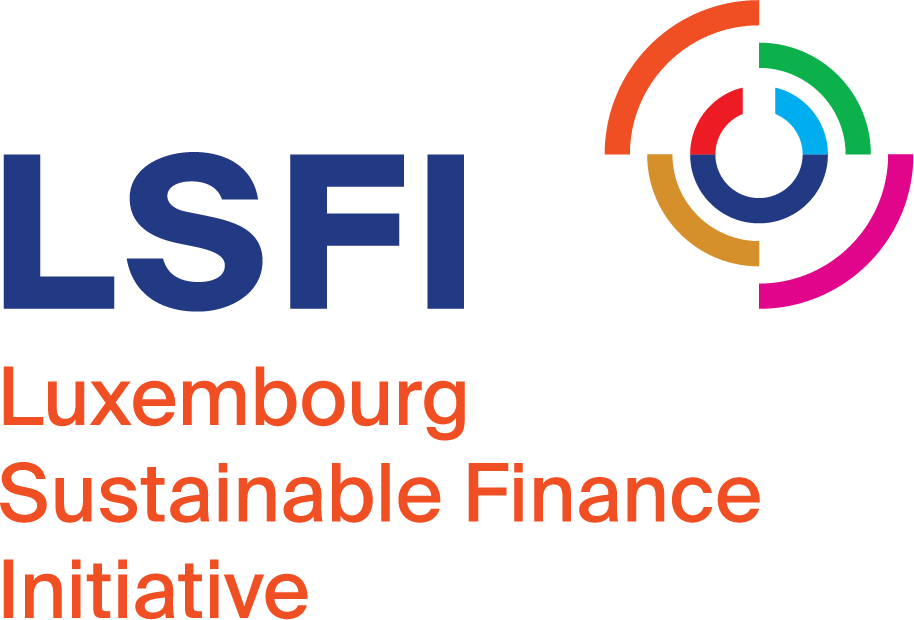FinTech stands for financial technology and refers to technologically enabled innovation in financial services[1]. Within the sustainable finance universe, some of the challenges that have arisen, such as those related to data standardization, reporting and regulation, might be addressed with the help of a technological solution. In this process, cooperation among players and identifying the challenges and opportunities can be key.
This month, we have interviewed Nasir Zubairi, CEO at the Luxembourg House of Financial Technology Foundation (LHoFT). We explored which role FinTech plays in the advancement of sustainable finance, the main challenges it can help cover and where this sector stands in terms of available solutions.
Luxembourg Sustainable Finance Initiative (LSFI): How can FinTech assist the financial sector in the transition towards sustainability?
Nasir Zubairi (NZ): Many of the needs of financial institutions in relation to the sustainable transition are cost related, for example, in relation to compliance. There are also some opportunity-related needs, for instance, the distribution of new ESG products to new market segments. Fintech firms can help with ensuring costs of change are kept low while also enabling product development and distribution.
(LSFI) Considering some of the challenges and the needs associated with sustainable finance, what are the opportunities for FinTech in the context of Luxembourg’s financial centre? How do these challenges affect the fintech ecosystem?
(NZ) In our recently released report, “Fintech for Sustainable Finance”, published in collaboration with Deloitte Luxembourg, we spoke with many professionals from the Luxembourg Financial centre about the challenges they face and needs they have in relation to sustainable finance and the opportunity for Fintech firms to help. The collection, processing, management and reporting of ESG-related data was considered a key area of opportunity for Fintech firms in Luxembourg, particularly as we already have a core capability in compliance and reporting related Fintech. This is known as “Regtech”. These competencies can be leveraged to extend solutions into the ESG space. More education and training concerning sustainable finance and associated regulations is also deemed a priority. FinTechs with core expertise in the area can leverage this know-how to help educate traditional institutions and cement strong partnerships.
(LSFI) Sustainable finance is a cross-sectoral topic involving and requiring different players and fields of expertise. What is the current level of interaction between financial institutions and FinTech? What measures would strengthen the link between them?
(NZ) Interaction between traditional finance and Fintech firms is good, but it can definitely be improved. A good starting point would perhaps be to stop using the nomenclature of “Fintech” and recognize that everyone is in the financial services industry. Unfortunately, there is still friction, an attitude that the old world of finance and new tech world are two separate beasts – they are not. A holistic multi-stakeholder approach that supports sharing information and best practices can also help mitigate some of the challenges; for example, the regulatory uncertainty, access to the right data, and availability of talent with the necessary knowledge and expertise. Collaboration also enables the sustainable finance ecosystem to be inclusive when moving ahead and not leave any actor behind that could be able to contribute impactfully to the cause.
(LSFI) Regarding the fintech sustainable finance offering, are the solutions available increasing? What topics are covered the most, what are the main gaps and how can we push for more ESG FinTech Solutions?
(NZ) Absolutely, there are a growing number of solutions, and this will continue to increase rapidly. In Luxembourg, given the nature of the needs of the customer – the traditional financial institutions with their particular functions – the overriding focus is on Governance solutions. We also have good collaboration with firms that focus on the social pillar of ESG as a result of our “Catapult: Financial Inclusion programme”, that has been running yearly for five years now. Perhaps the main gap is in Environment-focused Fintech, but I am sure we will see more firms blossoming in this space as needs become clearer.
With regards to how to get more solutions, bringing all stakeholders around the table, in a cross-sectoral working group, to discuss, prioritize and communicate needs would attract solutions.
…….
Notes
[1] https://www.fsb.org/work-of-the-fsb/financial-innovation-and-structural-change/fintech/





